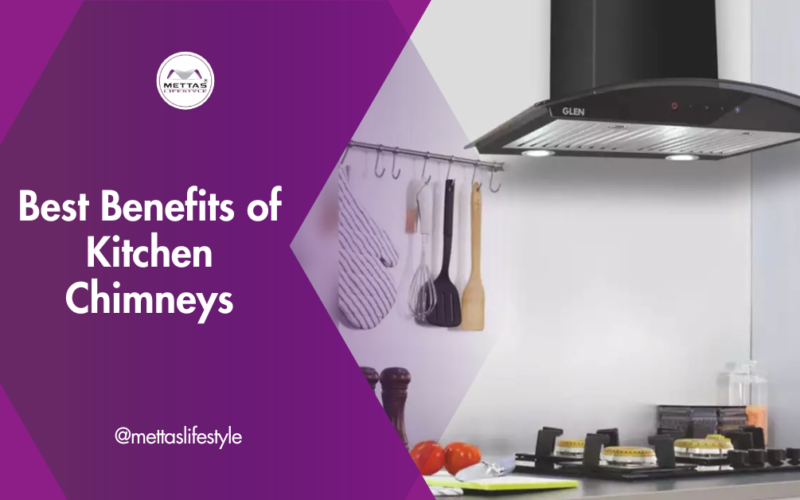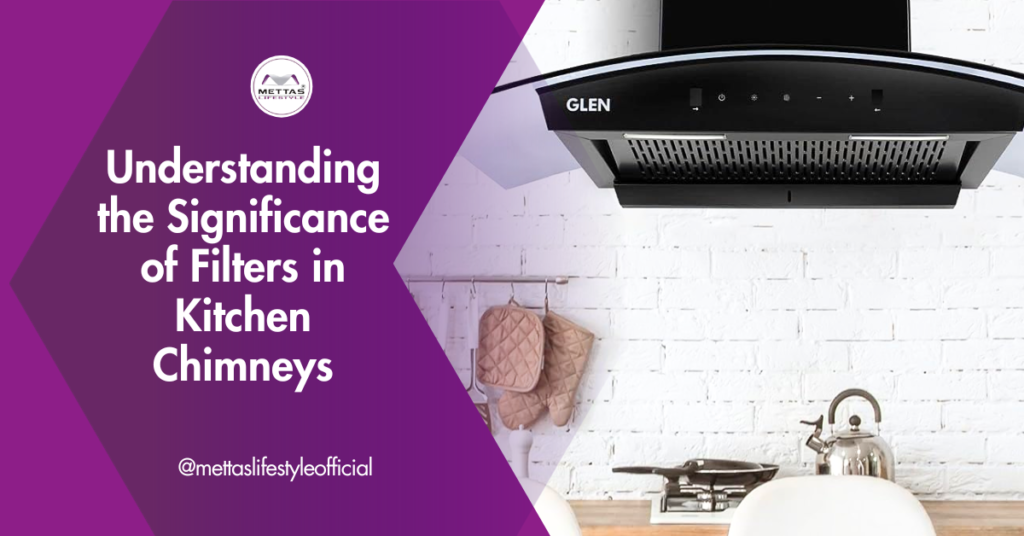

Kitchen chimneys have become indispensable in modern homes, serving as a vital component in maintaining a clean and odor-free cooking space. Their primary function is to eliminate smoke, grease, and odors produced during cooking, thus enhancing the overall cooking experience. One essential feature that plays a significant role in achieving this is the filter. In this article with Mettas Lifestyle, we will delve into the importance of filters in kitchen chimneys and explore whether a filterless chimney is a better alternative.
Table of Contents
ToggleThe Role of Filters in Kitchen Chimneys
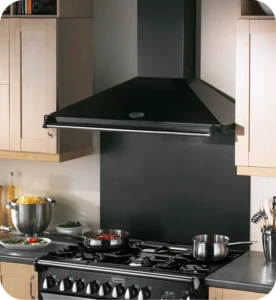
Filters in kitchen chimneys are designed to trap and purify the air by capturing impurities, making the kitchen environment more comfortable and healthy. They serve several crucial purposes:
1. Smoke Removal
Filters effectively remove smoke generated while cooking, preventing it from spreading throughout your kitchen and home. This not only keeps your kitchen air cleaner but also reduces the risk of respiratory problems associated with smoke inhalation.
2. Grease Elimination
Filters are highly efficient at capturing and containing greasy particles and oil droplets. This not only keeps your kitchen surfaces and appliances cleaner but also prolongs their lifespan by preventing the buildup of sticky grease residue.
3. Odor Control
Filters also play a significant role in eliminating cooking odors, ensuring your kitchen smells fresh and inviting. This is particularly important when you’re preparing meals with strong-smelling ingredients.
4. Improved Air Quality
By capturing smoke, grease, and odors, filters contribute to improved indoor air quality. Cleaner air is not only healthier for you and your family but also more pleasant to breathe.
5. Enhanced Chimney Efficiency
Filters help maintain the efficiency of your kitchen chimney by preventing the accumulation of debris and pollutants. A well-maintained filter ensures that your chimney operates optimally, reducing energy consumption and the need for frequent maintenance.
Types of Filters in Kitchen Chimneys
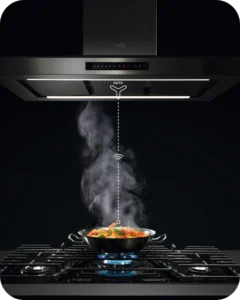
Kitchen chimneys are equipped with different types of filters, each offering unique benefits:
1. Mesh Filters
Made of multiple layers of aluminum or stainless steel mesh.
Effective at trapping grease and larger particles.
Require regular cleaning to maintain efficiency.
2. Baffle Filters
Constructed with multiple curved panels.
Ideal for trapping smoke, grease, and odors.
Easy to clean and durable.
3. Charcoal Filters
Contain activated carbon to absorb odors.
Often used in combination with mesh or baffle filters.
Need replacement periodically.
Is a filterless chimney better?
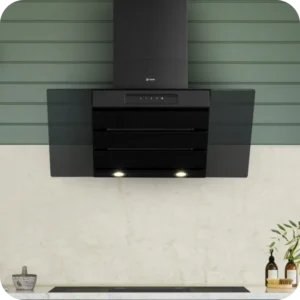
One of the most significant advantages of filterless chimneys is their low maintenance requirements. Since they don’t rely on traditional filters, you won’t need to engage in the regular cleaning and replacement that filter-based chimneys demand. This means less hassle and a cleaner kitchen without the need for frequent filter upkeep. The concept of filterless chimneys has gained popularity in recent years, but are they truly a better option? Filterless chimneys, also known as auto-clean kitchen chimneys, use advanced technology to eliminate the need for traditional filters. Instead of filters, they rely on a combination of heat, airflow, and oil collection trays to keep the kitchen air clean. Let’s explore the pros and cons of filterless chimneys:
Pros of Filterless Chimneys
Low Maintenance: Filterless chimneys are relatively low maintenance, as they don’t require regular filter cleaning or replacement.
Continuous Operation: These chimneys can operate continuously without the need for filter maintenance, ensuring uninterrupted ventilation.
Efficient Odor Control: They are efficient at eliminating cooking odors and maintaining good indoor air quality.
Cons of Filterless Chimneys
Limited Grease Control: While they are effective at controlling odors, filterless chimneys may not be as efficient at trapping grease and oil particles.
Higher Initial Cost: Filterless chimneys tend to be more expensive upfront due to their advanced technology.
Maintenance of Oil Collection Trays: Periodic cleaning of oil collection trays is required, which can be cumbersome.
Conclusion
In conclusion, filters in kitchen chimneys play a pivotal role in maintaining a clean, healthy, and pleasant cooking environment. They are highly effective at removing smoke, grease, and odors, ensuring that your kitchen remains a comfortable space. While filterless kitchen chimneys offer some advantages, they may not be the best choice if you prioritize efficient grease control. Ultimately, the choice between a filter-based and filterless chimney depends on your specific needs, budget, and preferences. Regardless of your decision, investing in a high-quality kitchen chimney is essential for a modern and efficient kitchen.
Related topics you must read: What are the best Benefits of Kitchen Chimneys?



